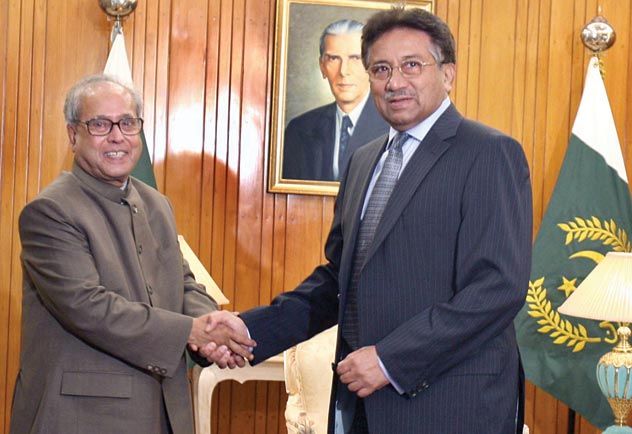|
|
|
ADVERTISEMENTS
|
|
PREMIUM
- HAPPY HOLIDAYS!
- Siliconeer Mobile App - Download Now
- Siliconeer - Multimedia Magazine - email-Subscription
- Avex Funding: Home Loans
- Comcast Xfinity Triple Play Voice - Internet - TV
- AKSHAY PATRA - Bay Area Event - Sat. Dec 6
- Calcoast Mortgage - Home Loans
- New Homes in Silicon Valley: City Ventures - Loden Place - Morgan Hill
- Bombay to Goa Restaurant, Sunnyvale
- Buying, Sellling Real Estate in Fremont, SF Bay Area, CA - Happy Living 4U - Realtor Ashok K. Gupta & Vijay Shah
- Sunnyvale Hindu Temple: December Events
- ARYA Global Cuisine, Cupertino - New Year's Eve Party - Belly Dancing and more
- Bhindi Jewellers - ROLEX
- Dadi Pariwar USA Foundation - Chappan Bhog - Sunnyvale Temple - Nov 16, 2014 - 1 PM
- India Chaat Cuisine, Sunnyvale
- Matrix Insurance Agency: Obamacare - New Healthcare Insurance Policies, Visitors Insurance and more
- New India Bazar: Groceries: Special Sale
- The Chugh Firm - Attorneys and CPAs
- California Temple Schedules
- Christ Church of India - Mela - Bharath to the Bay
- Taste of India - Fremont
- MILAN Indian Cuisine & Milan Sweet Center, Milpitas
- Shiva's Restaurant, Mountain View
- Indian Holiday Options: Vacation in India
- Sakoon Restaurant, Mountain View
- Bombay Garden Restaurants, SF Bay Area
- Law Offices of Mahesh Bajoria - Labor Law
- Sri Venkatesh Bhavan - Pleasanton - South Indian Food
- Alam Accountancy Corporation - Business & Tax Services
- Chaat Paradise, Mountain View & Fremont
- Chaat House, Fremont & Sunnyvale
- Balaji Temple - December Events
- God's Love
- Kids Castle, Newark Fremont: NEW COUPONS
- Pani Puri Company, Santa Clara
- Pandit Parashar (Astrologer)
- Acharya Krishna Kumar Pandey
- Astrologer Mahendra Swamy
- Raj Palace, San Jose: Six Dollars - 10 Samosas
CLASSIFIEDS
MULTIMEDIA VIDEO
|
|
|
|
|
SUBCONTINENT:
The General’s Gambit: Musharraf in India
Former Pakistan President General Pervez Musharraf visited India recently and it turned out old habits die hard—the good general had lost none of his skills when it came to using the media, raking up issues and generally attracting attention as he played the loyal soldier and visionary statesman at the same time, writes Siddharth Srivastava.

(Above): File photo of Indian External Affairs Minister meeting erstwhile Pakistani President Pervez Musharraf in Islamabad.
As far as New Delhi was concerned, it wanted the India visit in March by former Pakistan President General Pervez Musharraf to be uneventful and low key, given its keenness not to upset the democratically elected government in Pakistan.
Knowing Musharraf’s penchant to use the media, rake up issues, generally attract attention, play the loyal soldier and visionary statesman at the same time, this was wishful thinking.
And, that’s the way matters turned out.
It became apparent soon that the former general is just not ready or willing to fade into oblivion by limiting himself to the lucrative international lecture circuit and spending time with his dogs, playing golf and tennis.
Though Musharraf spoke about being a “man for peace,” he was belligerent and combative, bluntly saying he should not be ruled out from the power stakes in Pakistan.
Though the retired general said that the “trust deficit” between India and Pakistan has widened in the wake of the recent terror attacks in Mumbai and Lahore, he only ended up fanning more fires.
Musharraf said the two countries could go to war if main disputes are not resolved or if India carries out “any surgical strikes” on suspected terror camps within Pakistani territory.
“In such circumstances, a Kargil-like incident can occur,” Musharraf, said, though he added that the two countries should sort issues “with seriousness and in a sensible manner and not create war hysteria.”
On its part, New Delhi tried its best to keep Musharraf’s visit subdued, unofficial and private and bereft of any symbolic interpretations, ensuring the minimum security cover, some diplomatic civilities, but no red carpet being rolled out.
Indeed, India has reason to distrust the man who was the chief architect of the brief Kargil war in 1999 between the two neighbors.
Thus, a request for an audience with President Pratibha Patil, Prime Minister Manmohan Singh and Congress party President Sonia Gandhi was gently but firmly refused and so was a wish to visit Ajmer, a holy city in Rajasthan, on grounds of security.
Musharraf could perhaps have had an audience with former Prime Minister Atal Behari Vajpayee as the two had initiated the Indo-Pak peace process in 2004, but that too did not materialize due to the latter’s ill health.
Musharraf’s four-day visit was thus limited to attending a magazine conclave, another private meeting organized by an industry body, roaming around historical monuments like Qutab Minar and Red Fort and praying at the Jama Masjid (mosque) and Nizamuddin shrine.
Yet the retired 65-year-old General, in India to deliver a lecture on the invitation of a news magazine, used TV time and other occasions to speak about Kashmir, terrorism, Siachen, Kargil, the failed Agra summit, Indian Muslims in ways that have can never be palatable here, but were lapped up by sections in Pakistan.
Speaking at the conclave, Musharraf said such interactions could help address the “trust deficit, misperceptions, distortions and lack of understanding and lack of information.” He called for similar interactions in Pakistan.
Clearly playing to the galleries in Pakistan and perhaps an international audience, Musharraf claimed that the reason for growth of terrorism was that Indian Muslims, a sizeable minority, had been alienated, particularly in Kashmir, even as Hindus continued to live peacefully in Pakistan.
He said that “lots of mujahideen” in Pakistani society and “freelance jehadis” have “emotional involvement” with the cause of Kashmiris and this has led to the formation of terror groups such as Lashkar-e-Toiba, that India accuses of orchestrating some of the worst terror strikes in the country, including the November Mumbai attacks that left nearly 200 dead.
Predictably, such assertions evoked strong reactions.
“Indian Muslims are capable of solving their problems . . . We don’t need your advice. Don’t try to alienate Indian Muslims by your remarks, here or in Pakistan,” prominent Muslim leader Mehmood Madani retorted, that left the former president visibly nonplussed.
“Population of Muslims in India is more than that total population of Pakistan. You should know this,” Madani said.
However, not to be cowed down and finding form quickly, on another occasion Musharraf claimed that India’s external intelligence agency, the Research and Analysis Wing was aiding militants in Afghanistan to foment trouble, including terror attacks, in Pakistan.
Islamabad has been blaming RAW for the recent attacks on Sri Lankan cricketers in Lahore, an assertion that has been dismissed as ludicrous by most, even in Pakistan.
New Delhi has for long blamed Pakistan’s Inter-Services Intelligence as being hand-in-glove with terror groups.
“We have to accept the reality. Your RAW does exactly what the ISI does. My request is let us tackle RAW and ISI to stop this confrontation,” he said.
Musharraf mocked at India’s long-time request that Pakistan hand over underworld don and terrorist Dawood Ibrahim, suspected to be in hiding in Karachi at times.
Initially, denying that he knew about the whereabouts of Dawood, Musharraf said that even if the gangster was handed over to India, it would not change matters between the two countries and terror strikes would continue until disputes around Kashmir were sorted.
Of particular interest was Musharraf’s statement to a private TV channel that he is open to leading the country again if he could become a “useful” president.
“If someone offers, I will see whether I can play a role and then I will take the offer. I won’t like to be a useless President,” Musharraf said.
These thoughts hold some value as they were made in the wake of reports from Pakistan that Army chief general Ashfaq Pervez Kayani has ticked off President Asif Ali Zardari on the fast deteriorating political and security situation in the country.
These reports follow Kayani’s visit to America and indications that Washington might be open to a more active role by the Army, especially to control the brazen terror attacks in Pakistan
Musharraf had seized power in Pakistan by overthrowing then Prime Minister Nawaz Sharif in a bloodless military coup in 1999, but was forced to resign as president in August 2008 due to internal and external pressure, including pressure from America, that Pakistan should return to democracy.
Clearly, he is not walking away in a hurry.
|
 Siddharth Srivastava is India correspondent for Siliconeer. He lives in New Delhi. Siddharth Srivastava is India correspondent for Siliconeer. He lives in New Delhi.
|
|
|
|
|
|